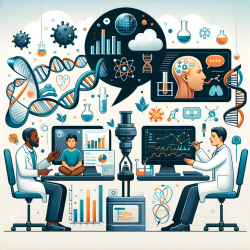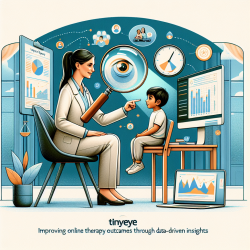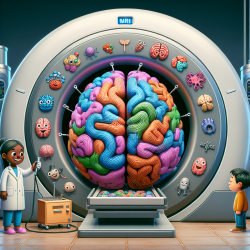Introduction
In the ever-evolving landscape of healthcare, the integration of biomedical informatics into translational medicine presents a promising avenue for improving patient outcomes and healthcare policies. This blog delves into the insights from the research article "Biomedical Informatics and Translational Medicine" by Sarkar (2010), exploring how practitioners can harness these findings to enhance their practice.
The Role of Biomedical Informatics
Biomedical informatics encompasses various methodologies, including bioinformatics, imaging informatics, clinical informatics, and public health informatics. These domains collectively support the translation of research findings from the laboratory to clinical settings and broader public health applications.
The integration of these methodologies into translational medicine facilitates the identification of effective interventions, evaluation of their efficacy, and their eventual adoption into healthcare policies. This process is crucial in overcoming translational barriers, such as moving innovations from bench to bedside and ultimately to community and policy levels.
Key Areas of Focus
- Decision Support: Decision support systems in biomedical informatics enhance clinical decision-making by providing intelligent filtering of information. These systems are pivotal in bridging gaps across disciplines, ensuring informed decisions in clinical and public health contexts.
- Natural Language Processing (NLP): NLP systems extract and structure information from unstructured data, such as clinical notes and research articles. This capability is essential in managing the vast amounts of data generated in healthcare, enabling efficient data retrieval and analysis.
- Standards: The development of data standards facilitates the seamless exchange of information across different healthcare systems. Standards like HL7 and DICOM are instrumental in ensuring interoperability and data integration across various biomedical domains.
- Information Retrieval: Effective information retrieval systems are crucial for accessing relevant data from diverse sources. These systems support the identification of pertinent information necessary for crossing translational barriers.
- Electronic Health Records (EHRs): EHRs play a vital role in capturing comprehensive patient data, supporting clinical decision-making, and enabling research through data warehouses.
Implementing Informatics in Practice
Practitioners can enhance their skills by integrating biomedical informatics into their workflows. This involves collaborating with informaticians to leverage decision support systems, adopting NLP tools for data management, and ensuring compliance with data standards for interoperability.
Moreover, engaging in continuous education on emerging informatics technologies and methodologies will empower practitioners to contribute effectively to translational medicine teams.
Conclusion
The synergy between biomedical informatics and translational medicine holds the potential to revolutionize healthcare delivery. By embracing informatics-driven approaches, practitioners can play a pivotal role in advancing patient care and shaping health policies.
To read the original research paper, please follow this link: Biomedical informatics and translational medicine.










